====================
A sermon offered on the Second Sunday after Epiphany, January 17, 2016, to the people of St. Paul’s Episcopal Church, Medina, Ohio, where Fr. Funston is rector.
(The lessons for the day are Isaiah 62:1-5; Psalm 36:5-10; 1 Corinthians 12:1-11; and St. John 2:1-11. These lessons may be found at The Lectionary Page.)
====================
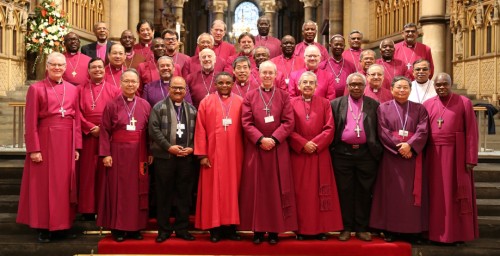
As I begin this sermon today, I would like to call your attention to two verses of Psalm 36 which we all recited together just a few minutes ago:
6 Your righteousness is like the strong mountains,
your justice like the great deep; *
you save both man and beast, O Lord.
***
8 They feast upon the abundance of your house; *
you give them drink from the river of your delights.
God’s righteousness extends to all of humankind and beyond; it extends to all of created life, all the “beasts” whom God saves together with human beings. All humans, all of creation “feast upon the abundance of God’s house” and “drink from the river of God’s delights.” I want you to fix that notion, that fundamental Christian belief firmly in your minds.
I have to confess to you that sometimes when I am preparing a sermon I ignore one or sometimes two of the lessons set out in the Lectionary and which are read in church. This week I gave a lot of thought to Paul’s First Letter to the Corinthian church and to Paul’s partial list of the abundant varieties of gifts, but I pretty much ignored Isaiah’s prophecy. I read it, but actually forgot about, forgot even what it said, as I was researching for this homily. As a result, during the 8 a.m. service I actually started laughing as the Isaiah lesson was read:
You shall be called My Delight Is in Her,
and your land Married;
for the Lord delights in you,
and your land shall be married.
For as a young man marries a young woman,
so shall your builder marry you,
and as the bridegroom rejoices over the bride,
so shall your God rejoice over you.
(Isa 62:4-5)
I should have paid more attention to Isaiah and his metaphor of marriage, for “marriage” is the word of the week, at least in Anglican Communion circles.
I’ll come back to that, but first I want to explore briefly the gospel story from John today, the familiar story of Jesus’ first act of power in John’s gospel, the changing of water into wine at a wedding in Cana of Galilee. This is such a rich story with so much to explore. For example, we could spend hours discussing the relationship between Jesus and his mother, a principal player in the story who is never named: John never calls her “Mary,” just “the mother of Jesus.” The dynamic between Jesus and Mom is fascinating! One of my clergy colleagues in our discussion group remarked, “I could never have talked to my mother like that! If I had . . . I can’t imagine!” But we don’t have time for that exploration this morning, so let’s move on.
A commentator on this gospel did the calculations about the amount of wine involved here. John tells us there were six stone jars filled with clean water (it would have to be clean water if it was for the Jewish ritual of washing hands, face, and feet before eating, which is what John means when he says “the rites of purification”). Obviously some had been used, for Jesus has the servants refill the vessels to the brim. So there is about 180 gallons of water there which become 180 gallons of wine. That’s a lot of wine! It turns out to be nearly 1,000 bottles. A bottle of really good wine these days can run over $100, maybe as high as $150. That’s $150,000 worth wine Jesus gave this couple for a wedding present. Talk about God’s abundance!
Now let’s think about Galilee and this village of Cana. From our perspective 2,000 years removed, we hear about Galilee or look at a map of “The Holy Land at the Time of Jesus” and we tend to think about the whole place as “Jewish territory.” But in Jesus time, that wasn’t so. Judea was Jewish territory (albeit Jewish territory occupied by the Roman Empire) but Galilee wasn’t. It was a much more culturally and ethnically mixed place. It was Gentile territory. It was where the Samaritans, whom the Jews didn’t particularly like, lived. It was where the land trade routes passed, where traders of all nations were constantly on the move and where some of them had settled. It was where brigands and thieves and highwaymen who preyed on the trade caravans hung out; Herod the Great twice sent his army into the Galilee to clear out that criminal element. And, of course, like Judea it was an occupied territory of the Roman Empire, so there were Roman soldiers stationed there.
Cana was a small village in this (I suppose we could say) cosmopolitan, ethnically mixed region. We don’t really know where this village was located. Archaeologists and bible scholars think it could have been one of four different places. A couple of them are just ruins these days, but in Jesus’ time they were all functioning villages. None, however, was very large – all probably had populations of less than 1,500 people, certainly not more than 2,000, and their populations would have included all that mix of people, as well as the Jews who lived there. And the Jews themselves were not a monolithic group. They were divided into what we might call “denominations” or better “political parties.” There were the Sadducees and the Pharisees about whom we read in the New Testament; there might have been Essenes, although they tended to separate themselves out of the settled towns but there might have been Essene sympathizers; there might have been Zealots, radicalized Jews who wanted to cleans their lands of Gentiles; and there were probably just ordinary, everyday Jews not aligned with any of these groups, people just getting on with life. They and their Gentile neighbors lived together, traded together, socialized, and went about the business of getting on.
When there was a major event in the life of a village family, like a wedding, perhaps the religious part of it would involve only the family and their co-religionists, but the celebration after? What we would think of as the reception? That would involve everybody; that was a major village-wide social event. We tend to think of wedding banquets as starting after the ceremony and ending sometime late in the evening after the couple has departed for their wedding night and their honeymoon. Not so in First Century Palestine. Back then wedding feasts could last five, six, seven days!
John’s story of this wedding feast begins in our translation with the words, “On the third day there was a wedding . . . . ” and that has puzzled commentators for generations. On the third day of what? What is John talking about? Some Greek scholars suggest that what this really means is “On the third day of the wedding feast . . . .” Folks had been partying, eating, drinking, and by the third day, they’d consumed all the wine. So Jesus steps in and with abundant grace provides more than sufficient wine so that this mixed community of Sadduceic Jews and Pharisaic Jews, of Essene Jews and Zealot Jews, of Jews and Gentiles, and maybe even some Roman soldiers thrown in, this mixed bag of people could continue to celebrate and have a good time celebrating a wedding.
So . . . about that Anglican Communion news. It’s about weddings. Specifically, it’s about same-sex weddings. At last summer’s General Convention, the governing body of the Episcopal Church, after doing nearly 40 years of theological study and reflection, decided that the sacrament of Holy Wedlock could be offered to same-sex couples. And because of that, something was done by the assembled chief pastors, the Primates, of the 38 provinces of the Anglican Communion who met in Canterbury this past week.
Exactly what that “something” is is unclear. It’s especially unclear if one read the headlines in the secular press and that’s in large part because the secular news agencies have never really understood the vague, sort of ghostly nature of the Anglican Communion. It’s a there-but-not-there sort of thing. It exists, but it’s very hard to describe. As a result we saw a variety of headlines describing what happened.
The most outrageous of them was found on the website of Katehon.com (which describes itself as an international geopolitical think tank); their headline read, “Anglicans Excommunicate the Episcopalians.” Well, no. That’s not what happened; nobody excommunicated anybody. Other headlines used less sensational terms: “suspend,” “sanction,” “punish.” None of them accurate. The Archbishop of Canterbury got into a verbal sparring match with some reporters when he insisted that the appropriate word was “consequences” and a reporter insisted that what had happened was a “sanction.” Specifically what Archbishop Welby said is:
We are not sanctioning them. We do not have the power to do so. We simply said, if any province, on a major issue of how the Church is run or what it believes, is out of line, there will be consequences in their full participation in the life of the Communion. (Church Times)
So how did we arrive at this and what does it all mean? To answer that, I think it might be helpful to briefly summarize the vague thing that is the Anglican Communion. As I said, it’s an international family of 38 national or provincial churches, nearly all of whom trace their liturgical and structural heritage, their leadership models, and their theology to the English reformation and the Church of England. Most them were established either through the spread of the British Empire or through missionary activity from England or, in some cases, from the American Episcopal church. Each of them is independent and self-governing; none of them can dictate to any other of them how to organize itself, how to govern itself, or how to offer its worship, sacraments, and teaching within its own provincial boundaries. These 38 independent provincial churches are, we like to say, linked by bonds of affection and respect, and mutual and cooperative ministry. Over the years, however, it has been helpful to think in terms of, and to create, what have come to be known as “instruments of unity.”
Historically, the first of these is the Archbishop of Canterbury, not the present incumbent nor any individual occupant of that See, but the See itself. As the Primate of the first Anglican Church, the Archbishop of Canterbury is the primus inter pares, the first among equals of the 38 chief pastors of the provincial churches; it is he who convenes two other of the “instruments of unity.” In historical order the first of these is the Lambeth Conference, the first of which was convened in 1867.
This is a decennial (every ten year) conference of diocesan bishops who meet to discuss matters of mutual interest: theology, church order, social justice. (They also have tea with the queen.) After a couple of weeks of meetings, they issue reports about what they have discussed; they do not legislate and they have no power to do so. Like the Archbishop of Canterbury, Lambeth Conference has no juridical or hierarchical authority over any member province; their reports are merely summaries of their talks, sometimes evincing agreement on particular matters.
The third “instrument of unity” is called the Anglican Consultative Council, created in 1971. The Council is made up of elected representatives of the provinces, both lay and ordained, and meets every three years. It’s steering committee meets more often. It’s self-defined role is
to facilitate the co-operative work of the churches of the Anglican Communion, exchange information between the Provinces and churches, and help to co-ordinate common action. It advises on the organisation and structures of the Communion, and seeks to develop common policies with respect to the world mission of the Church, including ecumenical matters. (Anglican Communion)
Like the other “instruments of unity,” the ACC has no legislative or executive authority over any member province.
The most recently created of the “instruments of unity” is the Primates’ Meeting. It was established in 1978 by Donald Coggan, the 101st Archbishop of Canterbury, as an opportunity for “leisurely thought, prayer and deep consultation.” (Anglican Communion) The Primates have met every other year since then, and sometimes more often as invited by Canterbury.
We often hear our Communion compared to the Roman Catholic Church, but the comparison is inapt. The Archbishop of Canterbury is not a pope. The Primates’ Meeting is not a college of cardinals. The Lambeth Conference is not a Vatican council. And the Anglican Consultative Council is not a curia. Again, I emphasize that none of these “instruments of unity,” including the Primates’ Meeting, have authority to dictate, legislate, or impose rulings upon any member province.
But that is what the Primates’ Meeting has attempted to do with these “consequences” for our action with regard to the full inclusion of our gay and lesbian members in the sacramental life of the church. What they have done is asked (they used the verb “require” but they really don’t have the authority to require) that for a period of three years no member of the Episcopal Church sit on any international ecumenical body representing the Anglican Communion in its relationship with other Christian bodies. We will still be active in such ecumenical endeavors in our own province, just not on the international stage. They have also asked that we, the Episcopal Church, during those three years, not participate in any inter-Anglican committees dealing with matters of theology or polity.
They’ve done so, as I said, because we have taken the steps of ordaining qualified LGBT members of the church and of sacramentally blessing the unions of same-sex couples. We did so not because of the pressures of secular society or culture. We did so because in 1978 and again in 1988, with rather prescient foresight, the Lambeth Conference adopted a resolution encouraging – remember that conference cannot legislate, it can only recommend – encouraging the member provinces of the Anglican Communion to reflect theologically on the place of LGBT persons in the life of the church. Specifically, it said:
This Conference: 1. Reaffirms the statement of the Lambeth Conference of 1978 on homosexuality, recognising the continuing need in the next decade for “deep and dispassionate study of the question of homosexuality, which would take seriously both the teaching of Scripture and the results of scientific and medical research.” 2. Urges such study and reflection to take account of biological, genetic and psychological research being undertaken by other agencies, and the socio-cultural factors that lead to the different attitudes in the provinces of our Communion. 3. Calls each province to reassess, in the light of such study and because of our concern for human rights, its care for and attitude towards persons of homosexual orientation. (Resolution 64 of the 1988 Lambeth Conference)
We did that work and we came first to the conclusion that we needed to honest and open and acknowledge that we (and, in fact, the whole of Christianity) has been ordaining gay men and (when permitted) lesbian women for a long time, but in a closed and closeted way; we needed to be up-front with the world about that. And we now are. As many of you recall, the Episcopal Church approved the ordination of the first openly gay, partnered man as a bishop in 2003, the Rt Rev. Gene Robinson, now-retired Bishop of New Hampshire.
Then over the past decade we have studied the question of same-sex marriage and, at this summer’s General Convention, made the (admittedly) major decision to offer the sacrament of marriage to same-sex couples. It is for doing the work requested of us by one “instrument of unity,” that another “instrument of unity” has imposed “consequences.” And I’m OK with that. The rest of the Anglican Communion is still working on the assessment the 1978 Lambeth Conference encouraged us to undertake. Some provinces, such as the Canadian church, the churches in New Zealand, Australia, and Southern Africa, perhaps even the Church of England will, I believe, come to the same place we have come in the not-too-distant future. Other provinces may be further behind. But we are on the forefront, on the cutting edge of what is (I believe) a matter of both social justice and grace and, as I have elsewhere commented about this, when did justice, or the gospel, ever come without a price?
As I reflected on these consequences of our church’s decision in favor of inclusivity in light of today’s lessons, I kept coming back to two things . . . First, the Psalm and those verses which remind us that God’s salvation is boundless, encompassing “both man and beast,” and that all drink from the abundant river of God’s delights. The “consequences” imposed by the Primates’ Meeting, it seems to me, are at odds with that vision of God. Second, I remembered the mixed bag of guests likely to have been at the wedding feast in Cana of Galilee and I remarked upon the fact that John gives us no information about how Jesus responded to his invitation. Did he ask, “Who else is invited?” Did he make sure that only people who lived up to some standard of purity would be amongst those with whom he would be dining and drinking? I kind of doubt it. Certainly, after converting 180 gallons of water into enough wine for everyone to continue partying for a few more days, he placed no restrictions on which of the guests might enjoy it.
God’s abundant blessings are given without restriction, overflowing and excessive, and available to everyone.
One additional thought . . . and I know this may seem to come from out of left field . . . but do you remember what the Episcopal Church teaches is the standard of giving for church members? Of course, you do! It’s the tithe, based on the practice required in the Law of Moses. Various verses in the books of Deuteronomy and Leviticus required the ancient Jews to deliver the first tenth of their produce, of their crops and of their newborn livestock, to the Temple. But what would happen if a faithful Jew lived too far from the Temple? Suppose he lived in Alexandria or Cairo, in Damascus or Tehran, in Oslo or Tokyo. What was he to do? Any ideas?
[Suggestions of store-housing or giving to the poor.]
Those are good suggestions, but they’re wrong. Here is what the 14th Chapter of Deuteronomy says:
If, when the Lord your God has blessed you, the distance is so great that you are unable to transport it, because the place where the Lord your God will choose to set his name is too far away from you, then you may turn it into money. With the money secure in hand, go to the place that the Lord your God will choose; spend the money for whatever you wish—oxen, sheep, wine, strong drink, or whatever you desire. And you shall eat there in the presence of the Lord your God, you and your household rejoicing together. (Deut. 14:24-26)
This is our God. A God who encourages us to enter into joyous fellowship, who shares abundant grace with all of creation, who invites – indeed, commands! – everyone to party. Everyone!
That is the theology we, the Episcopal Church, have arrived at: that everyone is invited to share the grace of God. For that, we have suffered consequences. But despite the sensationalist and grossly inaccurate headlines: we are still Anglicans. We are the most traditional of Anglicans!
Amen!
====================
A request to my readers: I’m trying to build the readership of this blog and I’d very much appreciate your help in doing so. If you find something here that is of value, please share it with others. If you are on Facebook, “like” the posts on your page so others can see them. If you are following me on Twitter, please “retweet” the notices of these meditations. If you have a blog of your own, please include mine in your links (a favor I will gladly reciprocate). Many thanks!
====================
Father Funston is the rector of St. Paul’s Episcopal Church, Medina, Ohio.
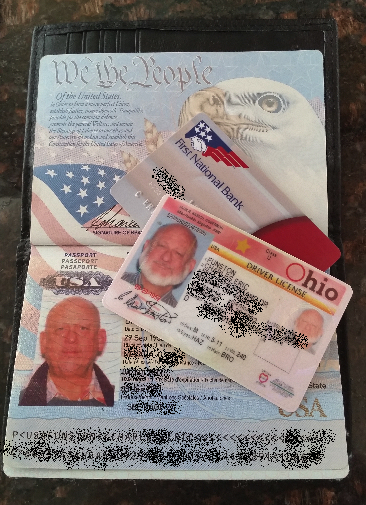
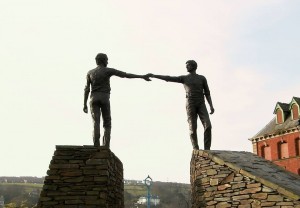 John the Baptizer came, Luke tells us, “proclaiming a baptism of repentance for the forgiveness of sins.” (Lk. 3:3) In today’s Gospel lesson, John tells the crowds who came to him, “Bear fruits worthy of repentance.” (v. 8) Our catechism teaches us that repentance is required of us to receive the Sacraments. With regard to baptism, the catechetical requirement is that we “renounce Satan, repent of our sins, and accept Jesus as our Lord and Savior;” with regard to the Holy Eucharist, that we “examine our lives, repent of our sins, and be in love and charity with all people.” (BCP 858, 860) But John’s admonition and the Catechism’s requirements leave us wondering, “What exactly is ‘repentance’?”
John the Baptizer came, Luke tells us, “proclaiming a baptism of repentance for the forgiveness of sins.” (Lk. 3:3) In today’s Gospel lesson, John tells the crowds who came to him, “Bear fruits worthy of repentance.” (v. 8) Our catechism teaches us that repentance is required of us to receive the Sacraments. With regard to baptism, the catechetical requirement is that we “renounce Satan, repent of our sins, and accept Jesus as our Lord and Savior;” with regard to the Holy Eucharist, that we “examine our lives, repent of our sins, and be in love and charity with all people.” (BCP 858, 860) But John’s admonition and the Catechism’s requirements leave us wondering, “What exactly is ‘repentance’?” 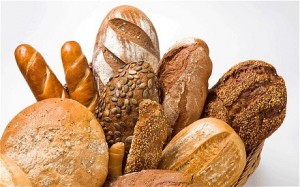 It’s the Second Sunday of Advent so according to our lectionary tradition, we hear the words of John the Baptizer, the voice of one crying in the desert, calling us to clean up the roadways and build a straight path for God’s coming. We are all familiar with the Baptizer. He’s some sort of cousin of Jesus. He’s a bit of a wild man; he lives in the wilderness wearing rough clothing and eating only what foods he can pick from desert plants and animals, “locusts and wild honey” is the way the evangelists put it. This year we hear Luke’s version of John’s story.
It’s the Second Sunday of Advent so according to our lectionary tradition, we hear the words of John the Baptizer, the voice of one crying in the desert, calling us to clean up the roadways and build a straight path for God’s coming. We are all familiar with the Baptizer. He’s some sort of cousin of Jesus. He’s a bit of a wild man; he lives in the wilderness wearing rough clothing and eating only what foods he can pick from desert plants and animals, “locusts and wild honey” is the way the evangelists put it. This year we hear Luke’s version of John’s story. The kingdom of God, of which today we celebrate Christ as king, is not a kingdom of security; it is a kingdom of peace, dangerous peace.
The kingdom of God, of which today we celebrate Christ as king, is not a kingdom of security; it is a kingdom of peace, dangerous peace.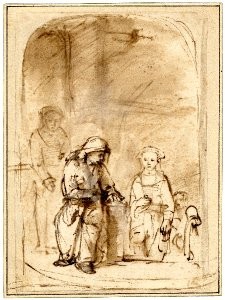 I get letters. Sometimes they’re really nice letters. And sometimes they’re not. Today, I want to tell you about a letter and how it caused me to rethink the two stories of women in today’s lectionary readings: First, the end of the story of Ruth from the biblical book named for her, and second, the story of Jesus watching and commenting upon the sacrificial giving of a widow in the Jerusalem temple.
I get letters. Sometimes they’re really nice letters. And sometimes they’re not. Today, I want to tell you about a letter and how it caused me to rethink the two stories of women in today’s lectionary readings: First, the end of the story of Ruth from the biblical book named for her, and second, the story of Jesus watching and commenting upon the sacrificial giving of a widow in the Jerusalem temple.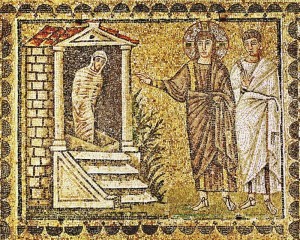 For some reason, although I know that the Lectionary is a three-year cycle and thus that the lessons are not the same every year, when All Saints Sunday rolls around I’m surprised when the lessons do not include John the Divine’s vision of the multitude in white robes standing before the Lamb’s Throne in heaven (Rev 7:9-17) or Jesus preaching the Beatitudes in the Sermon on the Mount (Mt 5:1-12). Those were the lessons, the only lessons provided for this feast in prior editions of the Book of Common Prayer. I’ve preached the “new” Lectionary for thirty years, so you’d think I’d be used to it . . . but each time the raising of Lazarus pops up as the Gospel lesson I think, “Well, what’s up with that?” You may have had that thought this morning, as well: “It’s All Saints Day. We’re doing a baptism. What’s up with this Lazarus story?”
For some reason, although I know that the Lectionary is a three-year cycle and thus that the lessons are not the same every year, when All Saints Sunday rolls around I’m surprised when the lessons do not include John the Divine’s vision of the multitude in white robes standing before the Lamb’s Throne in heaven (Rev 7:9-17) or Jesus preaching the Beatitudes in the Sermon on the Mount (Mt 5:1-12). Those were the lessons, the only lessons provided for this feast in prior editions of the Book of Common Prayer. I’ve preached the “new” Lectionary for thirty years, so you’d think I’d be used to it . . . but each time the raising of Lazarus pops up as the Gospel lesson I think, “Well, what’s up with that?” You may have had that thought this morning, as well: “It’s All Saints Day. We’re doing a baptism. What’s up with this Lazarus story?”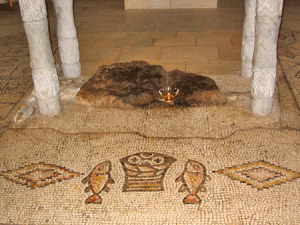 So this is a very familiar story, right? Actually, two very familiar stories. We all know about the feeding of the 5,000. All four gospels – Matthew, Mark, Luke, and John – tell it with slightly varying details. We all know about Jesus walking on the water. Three of the four gospels – Mark, Luke, and John – include that tale, again with slightly varying details. We sometimes mix up those variations, but basically the stories are the same so no big deal.
So this is a very familiar story, right? Actually, two very familiar stories. We all know about the feeding of the 5,000. All four gospels – Matthew, Mark, Luke, and John – tell it with slightly varying details. We all know about Jesus walking on the water. Three of the four gospels – Mark, Luke, and John – include that tale, again with slightly varying details. We sometimes mix up those variations, but basically the stories are the same so no big deal.

